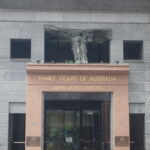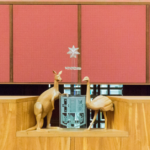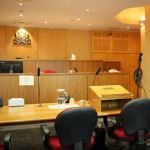Sovereign Citizens Imprisoned for Contempt of Court After Defaming Lawyer

Two people who identify themselves as sovereign citizens have been sentenced to 30 days in prison for contempt of court after publishing defamatory material against a lawyer despite having already been ordered to pay $160,000 in damages for defaming the lawyer by sending untrue emails to members of the legal profession.
The defamation proceedings
The Supreme Court of Western Australia found on 15 January 2025 that Adam Sydney Crown, Jerald Martin and Emma Hazel Martin defamed sole practitioner Laura Jane Michelmore by making several defamatory statements in two emails sent to several prominent members of the state’s legal community.
The first of the emails was sent on 28 July 2021 by the lawyer’s former client, Mr Brown, to, among others, the state’s Legal Practice Board, Chief Justice, Attorney-General and Commissioner of Police, accusing the practitioner of fraud and incompetence.
The second of the emails was sent on 31 July 2021 by Jerald and Emma Martin, also former clients of the practitioner and friends of Mr Brown, alleging the practitioner had committed offences against public justice including perverting the course of justice and corrupting a witness.
The emails were circulated across the legal profession, causing reputational damage and mental anguish to the lawyer.
Justice Paul Tottle of the Western Australian Supreme Court found that the trio had defamed the lawyer and ordered them to pay $160,000 in damages plus legal costs.
The contempt of court proceedings
Despite the rebuke and a court order on 15 January 2025 that the trio cease publishing defamatory imputations against the lawyer, Mr and Mrs Martin published a document they described as a “Statement of Claim” on 16 February 2025 impugning the lawyer to 12 people associated with a group which calls itself, The Sovereign Peoples Assembly of Western Australia.
The pair published further defamatory statements to the same group on 30 March 2025.
The conduct resulted in proceedings being brought against the pair for contempt of court.
Justice Solomon found on 18 June 2025 that the charge had been proven beyond reasonable doubt and sentenced the pair to 30 days in prison.
Defamation can amount to a criminal offence
While the outlined case involved the law of civil defamation, it is important to be aware that defamation can amount to a criminal offence in a number of Australian jurisdictions, including New South Wales.
The offence falls under section 529(3) of the Crimes Act 1900 and requires proof beyond reasonable doubt that the defendant:
- Published a matter that was defamatory to another living person,
- Intended by doing so to cause serious harm to that person or to any other person or were reckless as to whether serious harm would be caused,
- Knew the published matter was false, and
- Did not have a lawful excuse for the conduct.
The maximum penalty for the offence is three years in prison.
What is the meaning of defamatory?
Material is considered to be ‘defamatory’ if:
- It was published, which means communicated in any way to at least one other person
- It identified a person, whether directly or indirectly, and
- It had a defamatory meaning, which means it was likely to:
- cause the person to be shunned, shamed or avoided by others;
- adversely affect the reputation of the person in the minds of right-thinking members of society; or
- damage the person’s professional reputation by suggesting a lack of qualifications, skills, knowledge, capacity, judgment or efficiency in the person’s trade, business or profession
What are the legal defences to defamation?
The legal defences to defamation proceedings can be summarised as:
- Justification, which is where the defamatory material is substantially true
- Contextual truth, where imputations arising from the context of the material are substantially true
- Absolute privilege, where the material is published in the course of the proceedings of a parliamentary body
- Public documents, where the publication is a fair copy, summary or extract of a public document
- Fair reporting of proceedings of public concern, where the matter was of public concern and was already published
- Qualified privilege, where the information was provided to a person who has an interest in a subject and was provided to inform the person about the subject and providing the information was reasonable in the circumstances
- Honest opinion, where the publication was an honest opinion rather than a statement of fact and related to a matter of public interest and was based on proper material
- Innocent dissemination, where the person was an employee or agent of the primary publisher and did not know he or she was publishing defamatory material, and this was not due to his or her negligence, and
- Triviality, where the publication was unlikely to cause harm.
Contempt of court is a serious offence
Mr and Mrs Martin were found to have breached an order of the court by continuing to publish defamatory material about their former lawyer, Laura Michelmore.
Contempt of court is an offence which in New South Wales carries a maximum penalty of 28 days in prison for conduct in the Local or District Court.
There is no maximum penalty for contempt of court that occurs in relation to the Supreme Court of New South Wales – the appropriate penalty is determined by the court.
Contempt of court is defined as act that has the tendency to interfere with or undermine the authority, performance, or dignity of the court or those who participate in court proceedings.
Conduct which can amount to contempt of court includes:
- Failing to comply with or actively contravening a court order,
- Protracted swearing and yelling at a magistrate,
- Filming witnesses in an attempt to intimidate them,
- Evading questions in court or refusing to answer them,
- Refusing to take an oath or affirmation in court,
- Refusing to leave the courtroom after being directed to do so, and
- Disobeying court orders such as subpoenas to attend court or to produce evidence.
The courts treat these offences very seriously, especially if the contempt occurs in relation to Supreme Court proceedings where there is no prescribed maximum penalty.





